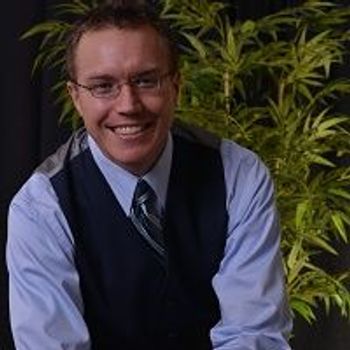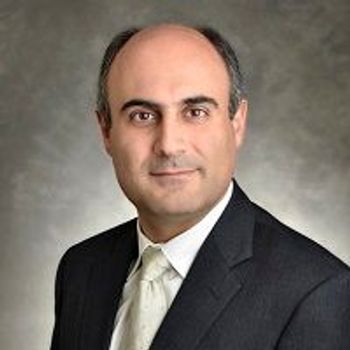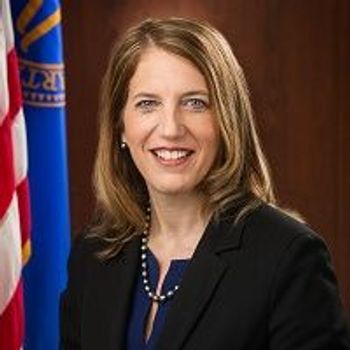
What makes a city a great place to live? The answer can vary depending on a person's generation. These cities are the best bets for people 35 and under.

What makes a city a great place to live? The answer can vary depending on a person's generation. These cities are the best bets for people 35 and under.

The federal government has regulated informed consent for decades. But some advocacy organizations are warning that proposed federal guidelines-which could be finalized in the upcoming year-could have a chilling effect on innovation, while fundamentally altering which studies get done.

Those of us who have been managing our own portfolios for years sometimes forget just how overwhelming and complicated it can seem in the beginning. If you are an investor who has recently been inspired to start saving for retirement, here are 5 steps you should follow to get started off on the right foot.

San Marcos is unexpectedly interesting-a surprise because we didn't think Dick's Classic Cars would be the magnificent show it turns out to be, and we didn't realize the Commemorative Air Force Centex Wing would have such a moving tribute to Jimmy Doolittle, or that the town would have the largest collection of outlet stores in the United States.

Though virtually unheard of a half-century ago, state lotteries have become a $70 billion industry in the United States. These states have the largest lotteries, ranked by sales.

The emerging telepharmacy industry promises small and rural hospitals the same safeguards and protections of an in-house pharmacist, but at a lower cost.

A new survey finds nearly two-thirds of final-year medical residents received 50 or more job offers, and nearly half received 100 or more offers. That story, plus a look at shortcomings at the Centers for Disease Control and Prevention and the medical origins of the Mediterranean diet, are among this week's must-read news stories for physicians.

As 2015 rolls around, columnist Jeff Brown shares thoughts on holiday excess, neglectful checkbook management, and unexpected energy consumption.

Air travel is rife with annoyances: Unexpected airline fees, last-minute delays, and low-quality high-cost food at the airport or onboard the plane. And then, there are the other passengers.

You likely recommend your patients get an annual physical to assess their health. If you want to achieve your long-term financial goals, make sure you also get an annual financial check-up.

Performance of a stock depends on a number of factors. While changes in company fundamentals directly impact the price movement, the broader industry and economy sometimes play a significant role too.

Singapore is known as the Lion city. Consistent with this symbol, some project that investment in Singapore will roar going forward.

A new report shows hospital-associated infections have dropped in 4 out of 5 areas targeted by a US Department of Health and Human Services (HHS) initiative, but the progress falls short of the department's infection-reduction goals.

The White House Office of National Drug Control Policy (ONDCP) is urging doctors to take a more active role in preventing drug abuse. The call comes as the Centers for Disease Control and Prevention (CDC) released new data showing drug poisoning deaths increased by 6% between 2012 and 2013.

Physicians are the experts when it comes to physical health, but when it comes to financial health, surveys suggest many doctors have a lot to learn. Here are 4 tips to get started.

Today's world is an incredibly tax-unfriendly & environment for physicians.

Patients and providers in a number of states have used the court system in an effort to increase Medicaid fees and access to care for Medicaid patients. But a new case out of Idaho could limit the ability of patients and providers to sue over Medicaid fees.

The national unemployment rate continues to fall, but the job market varies widely from state to state and city to city. These 9 cities offer the best job markets, according to a recent report.

This historic Texas town was settled by German immigrants. Today it's got a decidedly western character, and plenty of local characters.

The Year 2015 is almost 2 weeks old, but it's never too late for a new year's resolution, particularly for something as important as retirement.

Buying a car is one of the biggest investments most people make, and while it's easy to make a purchase based on ticket price, the actual cost of buying and owning a particular car can vary widely depending on the cost and frequency of the car's repair and maintenance needs.

Will hospitals turn into "data surveillance centers"? That's one of the questions tackled in this week's list of must-read stories for physicians. Also on the list: A columnist's assertion that the public shouldn't feel sorry for doctors.

As the healthcare system transitions form a fee-for-service model to a value-based model, early adopters say financial incentives are not a panacea.

We live in a time of unprecedented access to data-not only real-time, but also historical. From an investor's standpoint, it opens the door to immense possibilities.

An Ohio neurologist found his loves of music and medicine work in harmony.

A new study suggests healthcare marketplace users in high-competition states face higher deductibles and, in some cases, higher premiums, than their peers in low-competition states.

Federal officials are downplaying Affordable Care Act-related changes to tax filing this year. The changes include a new requirement to report one's health insurance status.

The brouhaha about cost, access, and quality arising from our chaotic jumble of healthcare institutions needs to be resolved. Meanwhile, docs can do a better job of helping our patients directly by investigating and using these new diagnostic tools available through the miracles that are the computer and the Internet.

Many credit card companies now offer "price protection," meaning consumers can be reimbursed if the price of an item drops shortly after a consumer buys it using their card. But not all price protection programs are created equal.

A palliative care doctor in rural California launched a startup firm to help him care for patients in remote locations. The key challenge is financing his big idea.